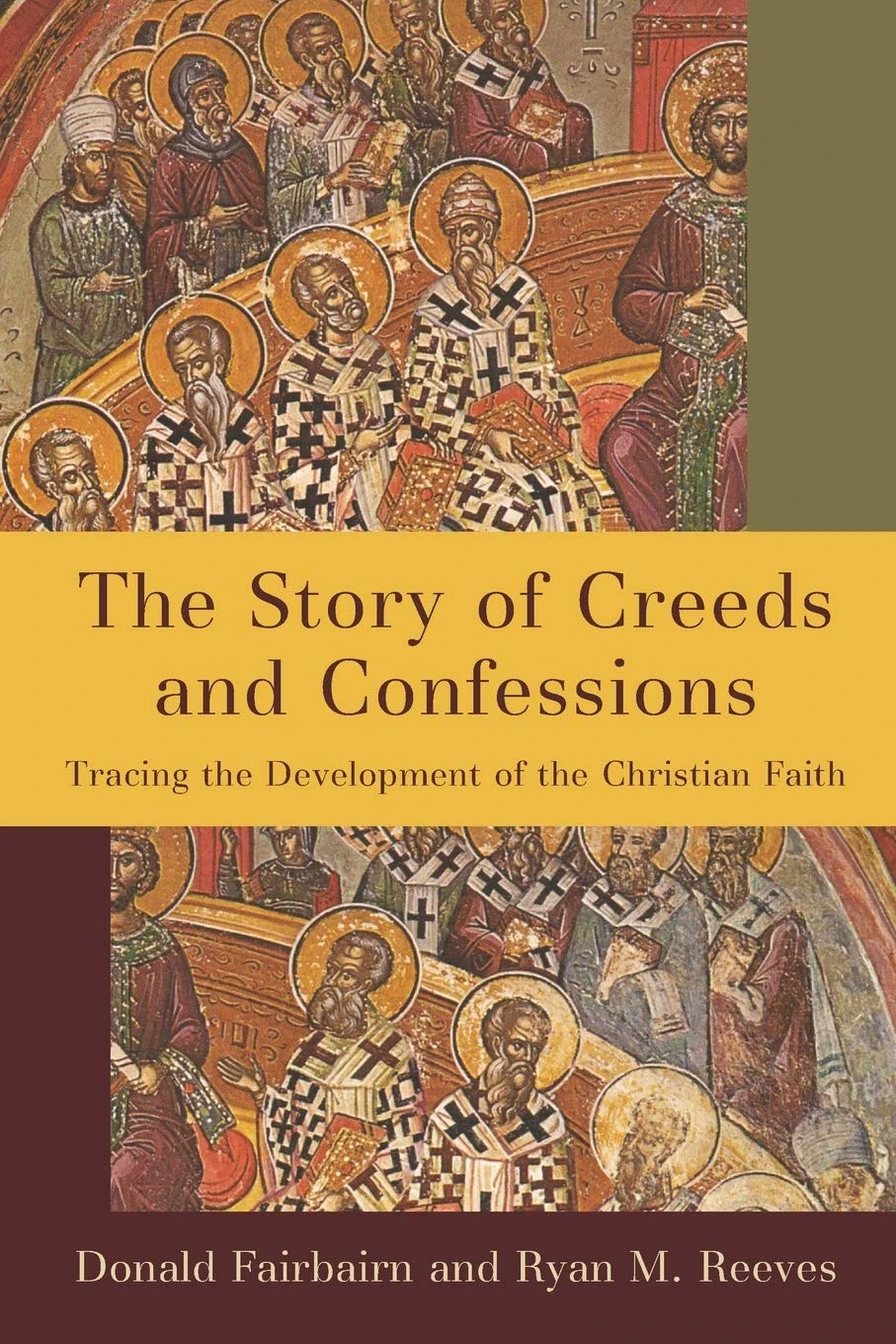
Donald Fairbairn and Ryan M. Reeves
Reviewed by: Calvin R. Goligher
The Story of Creeds and Confessions: Tracing the Development of the Christian Faith, by Donald Fairbairn and Ryan M. Reeves. Baker Academic, 2019. Paperback, 416 pages, $20.23 (Amazon). Reviewed by OP pastor Calvin R. Goligher.
New Horizons readers will no doubt be delighted to hear of a new history of the church’s confessions of faith. That history, from the Reformation to the present day, is covered in the second half of this book. Our own Westminster standards are treated, as are many less familiar confessions from other traditions. Everyone from Anglicans to Unitarians wrote confessions, and they are all covered. Even the Eastern Orthodox Church was involved in Reformation confessions, I was surprised to learn. Many in our churches will also be keenly interested in the discussion of modern confessional revisions, since our own history is closely connected to these developments.
The best thing about the history of confessions in the second half of this book is that it follows a wonderful history of creeds in the first half. Creeds express Christian faith in the persons of the Trinity, out of a fundamental conviction that salvation is by faith in God, who shows us grace by coming down to rescue us from our sin. Out of this central conviction grew the church’s creedal affirmations that Jesus Christ is a fully divine savior, and that he assumed a true humanity.
Where did the church learn to express its faith in creeds? The opening chapter of this book shows that the idea comes straight from the Bible. The “Shema” of Deuteronomy 6:4, the baptismal formula of Matthew 28:19–20, and other texts get to the heart of the biblical message by stating the name of God, in whom Christians trust for salvation. Those who hold to “no creed but the Bible” can learn to love creeds by reflecting on such biblical statements of faith. Protestants who instinctively evaluate everything by the doctrine of justification by faith can also learn to love creeds for the way they point our faith to the God who justifies.
This book explains church history in a clear and coherent way. This is an important quality for any book on the subject, but it is especially rare for books on the early church. Even those of us with a decent grasp of Reformation history are often confused by the early church. We wonder whether the bulk of the church ever understood the Bible or the gospel amid the seemingly ceaseless conflicts between East and West, Bible and philosophy, piety and politics. Much of the problem comes from the fact that historians have often explained early church history from perspectives that are foreign to Christianity, thus obscuring rather than enlightening the subject. By working from the church’s own perspective expressed in the creeds, this book provides (in my judgment) the clearest and most accurate introduction to early church history currently available.
Understanding creeds and confessions together will help us to use our confessional standards more wisely. The Westminster standards are not the sum total of our Christian heritage, but a faithful expression of the catholic faith of the creeds. Accordingly, their most important elements are precisely those that are not unique to them. In the same way, this understanding will be fruitful for our Christian life, as we seek the maturity that rejoices in the unity of Christ’s body (Eph. 4:13), even as we give thanks for the blessings of our own confessional tradition.
March 01, 2026
February 15, 2026
February 01, 2026
January 25, 2026
January 18, 2026
January 11, 2026
Texts that Transform: Church and Ministry
January 04, 2026
© 2026 The Orthodox Presbyterian Church